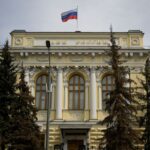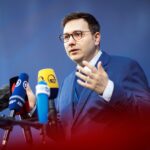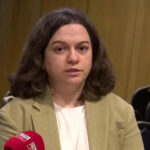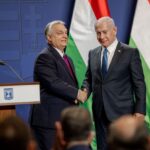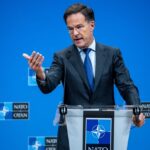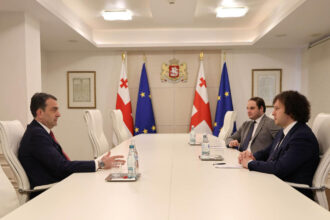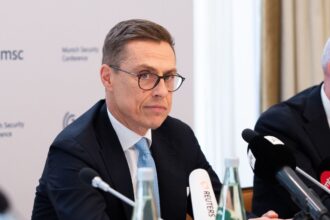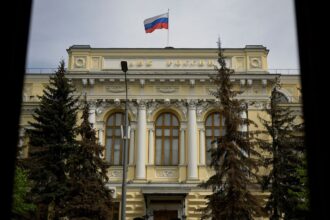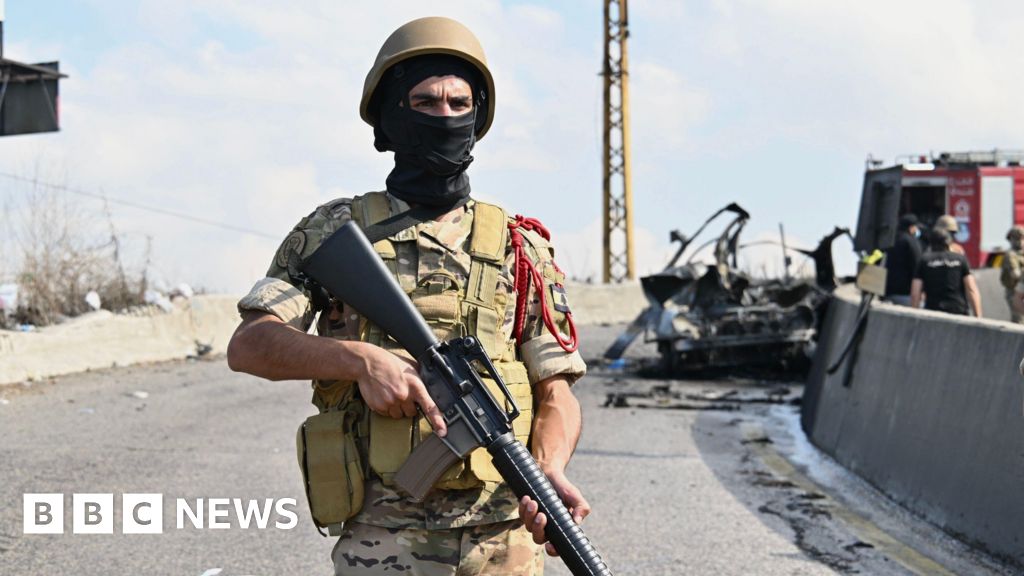Senior American officials have returned to the Middle East in an attempt to reach a ceasefire agreement between Israel and Hezbollah. The Lebanese prime minister Najib Mikati expressed cautious optimism regarding a possible deal.
Brett McGurk, President Biden’s Middle East Co-ordinator and Amos Hochstein who has led negotiations with Hezbollah are in Israel to talk with the country’s authorities. However, it is not clear if any progress can be made before the US presidential elections next week.
Israel has launched a massive air campaign across Lebanon, and a ground invasion in areas near the border.
According to the Lebanese Health Ministry, at least 2,200 people were killed in the country. 1.2 million people, mainly Shia Muslims, have been displaced. This has heightened sectarian tensions, and added pressure to public services, which are already struggling due to years of severe economic crisis.
The Israeli government has stated that its goal is to improve the security situation along its border and ensure the return of 60,000 residents who were displaced by Hezbollah rocket, missile, and drone attacks.
What is Hezbollah? Why is Israel attacking Lebanon and what is Hezbollah?
* Maps of the Israel-Hezbollah Conflict: Where are the fighting taking place in Lebanon?
How the US elections could impact the Middle East
On Wednesday, Israeli public television Kan published a draft agreement for a 60-day initial ceasefire, written by Washington on Saturday.
Israel would withdraw from Lebanon in the first week after the agreement, and the Lebanese Army would be deployed along its border. Hezbollah will cease its armed presence during the pause.
The goal is to pave a way for the full application of United Nations Resolution 1701 which ended the 34 day war between Israel and Hezbollah, in 2006.
The text called, among other things for the removal of Hezbollah and all other armed groups from the area 30km (20 miles north of the border) south of the Litani River. Only the UN peacekeeping forces known as Unifll, and the Lebanese Army would be allowed to enter the area.
Israel, however, is reportedly concerned that the Lebanese Army and UN peacekeepers won’t be able to keep Hezbollah from the border. They want to be granted the right to strike at the group after the war. The Lebanese authorities are likely to reject this demand, as they say that there should not be any changes to Resolution 1701.
Sean Savett, White House spokesperson for national security, responded that there were “many drafts and reports” circulating which “does not reflect the current status of negotiations”. Savett did not respond to the question of whether this text would be used as a basis for future talks.
Hezbollah is a powerful political party and militia that is armed and funded by Iran. It faces pressure from within the country to reach a deal. This pressure comes mainly from critics, who claim the group has dragged Lebanon into an unwarranted conflict.
Israel’s bombings have killed the majority of Hezbollah’s leadership, including its long-time leader Hassan Nasrallah. They also caused extensive destruction in areas of southern Lebanon, eastern Bekaa Valley, and Beirut’s south suburbs where the group has sway.
The group began its campaign on the 7th of October, the day following the Hamas attacks against Israel. It has said for years that its attacks will continue until there is a Gaza ceasefire. It is unclear whether the group would be willing change its position.
Naim Qassem, the new Hezbollah secretary general, gave his first speech on Wednesday. He said that under his leadership, the group would continue its war plan, but it could accept a deal if certain conditions were met. He said that Israel has not yet made any proposals that could be discussed.
Israel launched heavy airstrikes on the historic Bekaa Valley city of Baalbek as he spoke. This could indicate that Israel is expanding its military campaign in this strategically important area, near the border of Syria.
In an interview with Al Jazeed, Mr Mikati stated that he had become “cautiously hopeful” after speaking to Mr Hochstein who visited Lebanon last Thursday. He said a ceasefire was possible in the “coming days or hours”.
Reports suggest that Benjamin Netanyahu, the Israeli Prime Minister, is waiting to see the results of the election before making a decision.
US officials are also working to reach an agreement between Israel and Hamas on a ceasefire in Gaza and the release of hostages. The White House announced that CIA director William Burns will travel to Cairo for talks on Thursday.
Read More @ www.bbc.com


